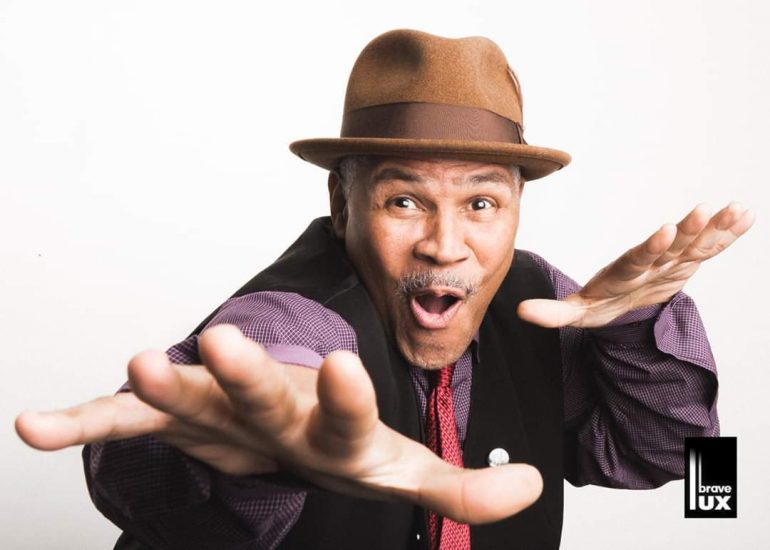One of Chicago’s finest directors, theater legend Ron OJ Parson, is currently directing playwright Lydia R. Diamond’s play Stick Fly, which runs through March 15 at Writers Theatre in Glencoe. (Click here for tickets.)

We recently discussed the play with Ron, as well as his life as an actor and director, his love for August Wilson plays, and his advice for upcoming actors and directors.
N’DIGO: Tell us about this exciting new play at Writers Theatre called Stick Fly.
Ron OJ Parson: Stick Fly is about an affluent Black family with a home in Martha’s Vineyard. This story is about upper-class African Americans, who even though they have a home in a very exclusive area, still have to deal with the issues of their ethnicity.
Black people have had property on Martha’s Vineyard for hundreds of years, but few know the story of Blacks living at the Vineyard. Many playwrights have written about it, but only a few of those plays have been produced. There isn’t much media coverage regarding these amazing stories.
The LeVays are the fictional Black family living on Martha’s Vineyard that comes together for a weekend vacation. During the play, you find out about the different skeletons within the family. You get a behind the scenes look at old and new relationships. You also get to witness that they have the same kind of issues that we all have.

Why did you want to direct this play?
Stick Fly originated here in Chicago at Congo Square Theater, a relatively new theater, in 1999. Lydia Diamond and I were founding members of the theater company called Onyx Theater Ensemble.
Alfred Wilson, Lydia, myself, and several others formed it together, and we did some great things at Onyx. Lydia was an actress back in those days, but even then she displayed her talents as a playwright. Fast forward to today, I’ve always wanted to direct plays that Lydia wrote, but we never connected until now with Stick Fly.
The opportunity to work with her came through her relationship with Writers Theatre when they brought her in as a playwright for Smart People, one of her successful New York plays. So, with Stick Fly, it just clicked that I would be the director since I also have a relationship with Writers.
I’m excited to direct this play because Lydia’s plays are very intelligent, thought-provoking, which gets interesting, but at the same time, they are also funny. Plus, it’s a play about African-American culture that we don’t see much of on stage.

You have known Lydia for years, and both of you have equal admiration for each other; however, this is your first collaboration. Why is that?
Yes, we have known and respected each other for years, but ironically, we’ve never worked together. I directed her as an actress when we first started in Chicago, which was just some readings we did, but I’ve known her all these years and I never had the opportunity to direct one of her plays. I’ve read most, if not all, of her plays, and we talked several times about me directing one of them, but it just never happened.
Then she blew up with plays on Broadway. Alicia Keys produced Stick Fly with Broadway director Kenny Leon, who is currently directing the Broadway production of A Soldier’s Play. Stick Fly is a play that has been universally seen by many already, so hopefully, some of the things I bring will provide a newer look at a fantastic story.
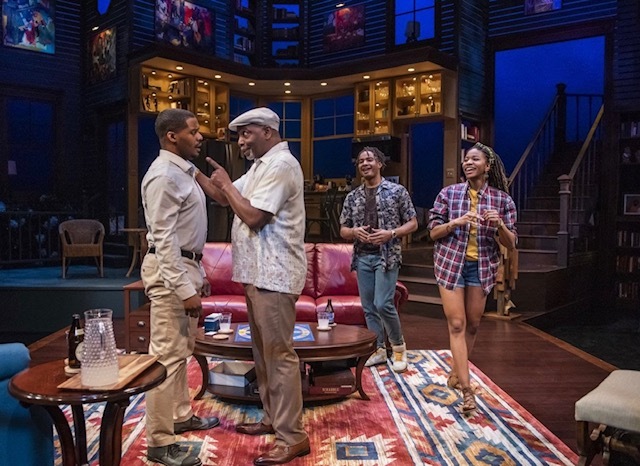
What personal touches have you added to this play?
You always want to put your own touch in when directing a play. Five directors can direct the same play, and all five adaptations will come out with something different. Lydia mentioned to me – and I appreciated her saying it – that when she sees a play and then sees my version of that same play, I bring a different perspective that she enjoys. I directed Mountain Top at Court Theatre, that was produced in New York, and many people told me that they enjoy the different spin I included.
I try to put my personality into my work, so hopefully that comes through with the spiritual aspect of what I do. I like to incorporate magic into my plays as well. I’m a big fan of magic. There is a place here in Chicago called the Magic Lounge that I frequently visit, and the woman who runs it is a former stage manager. The first time I went there, she recognized me.

I also like to start with the aspect of love. In Stick Fly, there’s love within the family, and like with any family, things happen that you have to resolve. This family symbolizes what a typical family has to endure. Those are the personal things I try to add.
Were there any challenging moments bringing this play together?
Yes, there were a lot of challenges. It’s a challenging play, in terms of being able to complete some of the ideals written within the play. However, those kinds of problems can bring out your creative juices. That’s another thing about directing; you collaborate with everybody to bring ideas together. Still, yes, some production aspects were challenging.
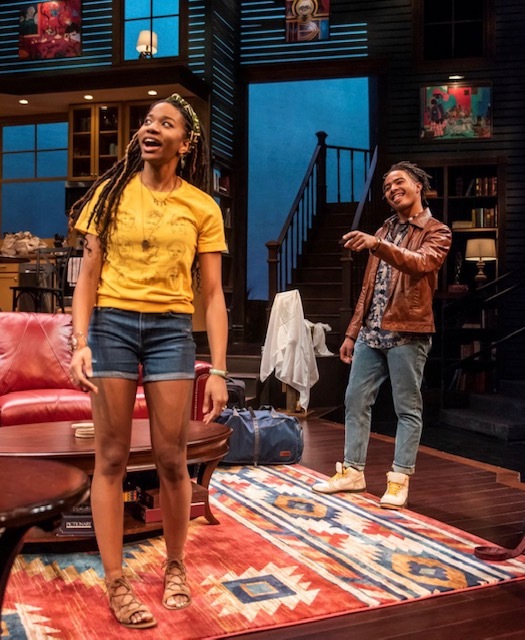
Do you still get “director’s fear” during opening nights?
I wouldn’t call it fear, more like a bit of an anxious feeling. I still get nervous fear as an actor, which is good to get my adrenaline going. With this play, however, I did feel a little nervous because Lydia is a friend.
I remember when I did The Piano Lesson at Congo Square by August Wilson. He was there. August was very involved with theater at Congo, and that was their first production, but I wasn’t nervous. I was sitting two seats away from him, and he saw a few things that I incorporated into his play, and I was able to watch his reaction.
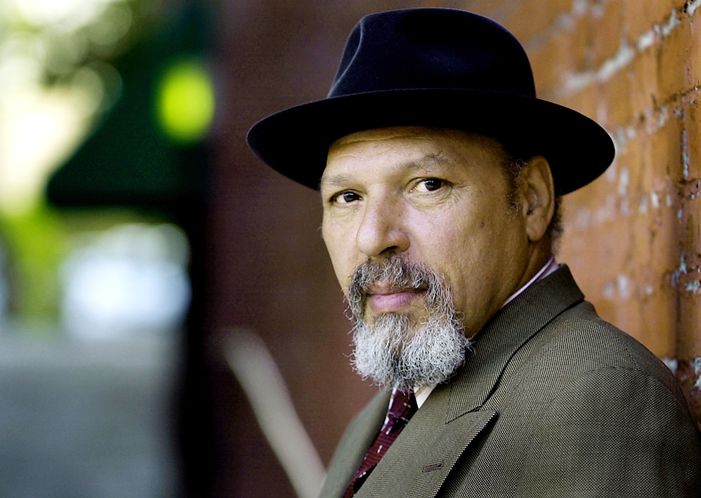
Were you able to develop a relationship with August Wilson?
I wouldn’t say I developed a relationship, but I did know him, and I was around him during some of the plays he worked. When Jitney (the eighth play in Wilson’s “Pittsburgh Cycle” series) was at the Goodman Theatre, I understudied for three of the roles.
Me and some of my buddies – Paul Butler, Steven Anderson, Russell Hornsby, who’s a big TV guy now, and Anthony Chisholm. I was understudying, and August was writing; so, I was around him watching and learning from him. Then I spent time in Pittsburgh, where August produced plays.
I also came up with Steve Henderson, and a friend of August’s named Clyde Purdy. Purdy saw one of my plays and said to me, “Yeah, you got something,” and I appreciated that. It was with guys like Lou Bellamy and others in Minnesota, where August spent a lot of time. It’s a kind of synergy with all of those guys that do a lot of August Wilson plays and carry that spirit that brings his plays to life.
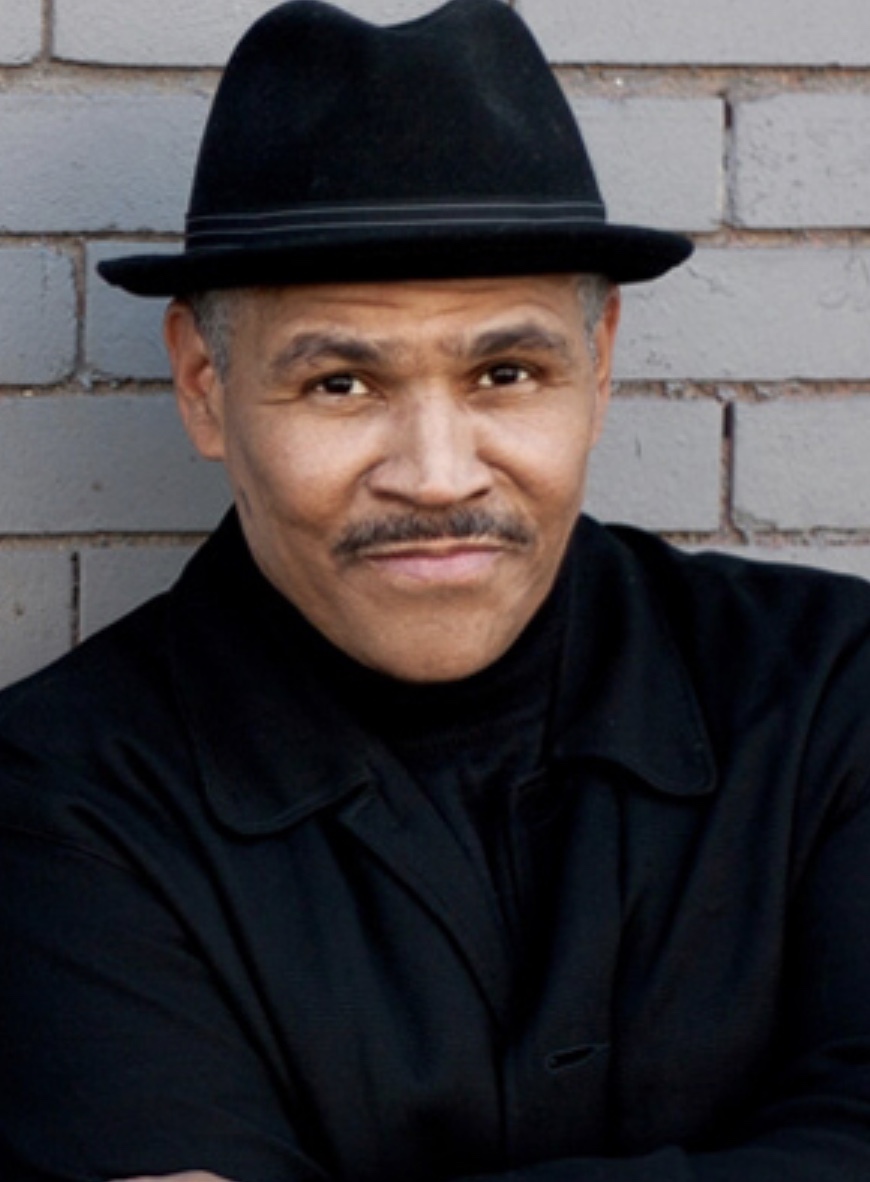
The first play I did at Court Theatre was Fences, another August Wilson play, but unfortunately, he was ill and wasn’t able to attend. However, when I directed The Piano Lesson, he saw it and recommended me to direct the play in Baltimore.
At that time, I was in a play that was going to Broadway, (Author’s Note: Ron still acts, but mostly in television and film), so I had to decide whether to perform on Broadway or direct center stage at August Wilson’s recommendation.
I decided to go to Broadway; however, upon reflection, I think I should have done the play. Maybe then, I would have developed a closer relationship with him because he did see my work, and he trusted me with his plays.
Do you like to work with familiar actors or new actors?
That’s a good question; the answer is both. Some people say I like to use the same people, and that’s true to a certain extent. There are certain plays that I do use familiar actors because they know me, and I know them. We work well together as a team, which occurs with some of the August Wilson plays.
However, in this play Stick Fly, all of them are new actors. Four of the hottest young actors in town that will probably go to New York or LA, because they are that good.

Two of the young ladies (Ayanna Bria Bakari & Jennifer Latimore), I worked with at Timeline Theatre in Too Heavy For My Pocket. I also worked with Eric Gerard in To Catch A Fish, which was also at Timeline, and based on actual events in Milwaukee regarding policemen railroading him into selling drugs. So I can work with both.
Can you give a new actor and director some wisdom on some of the things they need to know to succeed?
Well, it’s a new day for actors and directors, because when I first got to Chicago, there were only about two or three black actors. Ernest Perry, Jacqueline Williams, and Sherlyn Bruce. But now it’s more open, open because more theaters like Writers are doing plays with more diversity.
One thing I would say is that you have to persevere. You have to prepare for rejection, be ready for that stone wall, and then persevere. The fact that I’ve been doing this for 50 years is due to my ability to persevere. There were a lot of low times, and a lot of young people think it’s easy. They get out of college thinking you can go right into acting or directing, and it’s not that easy.
Another thing is to know the history. They need to know the history of the theaters like the Negro Ensemble Company. Learn about Kuumba Workshop and places like Chicago Theatre Company. They need to do the research.
Negro Ensemble Company, if it weren’t for them, there wouldn’t be a lot of us acting or directing. I recently saw A Soldier’s Play on Broadway and met with Douglas Turner Ward, founder of the Negro Ensemble Company, who is now 90 years old. I told him that them coming to my junior high school and performing the play Day of Absence inspired me to continue on in theater.
So, I think they need to study, learn about those that came before them, and have the work ethic to persevere.


